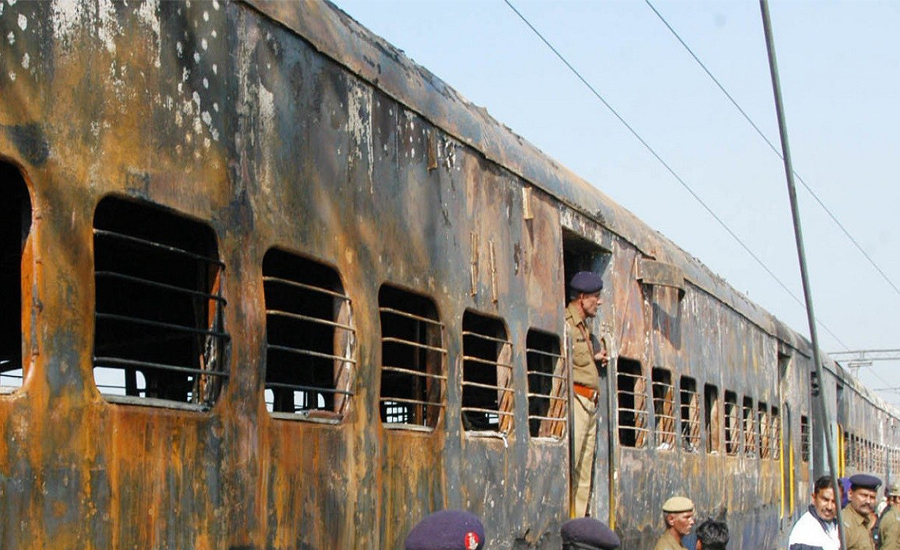Indian court defers verdict on Samjhota Express case till Mar 14

MUMBAI (92 News) – An Indian National Investigation Agency (NIA) court on Monday deferred verdict in a case regarding the deadly 2007 Samjhota Express bombing and adjourned the hearing of Samjhota Express case till March 19.
According to the Indian media ‘The Hindu’, the verdict was deferred after a Pakistani woman filed a petition in the special court to have her statement recorded as a witness.
Rahila L Vakeel in her application claimed that she had some evidence relevant to the case, the Times of India (TOI) quoted a lawyer as saying.
It is pertinent to mention here that in February 2007, alleged Hindu extremists had bombed the Samjhota Express, killing 68 people, 42 of whom were Pakistanis.
The explosions had ripped through the train during its transit through Panipat on its way to Lahore from Delhi. The next hearing of the case will be held on March 14.
According to The Hindu, four accused in the case were presented for today’s hearing amid tight security. They included the main accused, Naba Kumar Sarkar, better known by his nickname Swami Aseemanand.
Sunil Joshi, the alleged mastermind of the attack, was killed in December 2007, according to TOI. Three other accused remain at large and have been declared proclaimed offenders.
The final arguments in the case were concluded on March 6 and the judgement was reserved for March 11, the report added.
Indian authorities hold up Samjhauta express
Earlier, Indian authorities on Thursday stopped Samjhota Express train from entering into India and sent it back to Pakistan without giving any reason.
According to report, 57 Pakistani passengers including traders were offloaded at Wagah Border after the Indian officials did not give clearance to the train to cross the border.
The Indian authorities said that the farmers were protesting in India and that there were fears of an attack on the train service.
The protesting farmers blocked railway tracks at different places in Indian Punjab, seeking higher compensation for crops from the state government.







